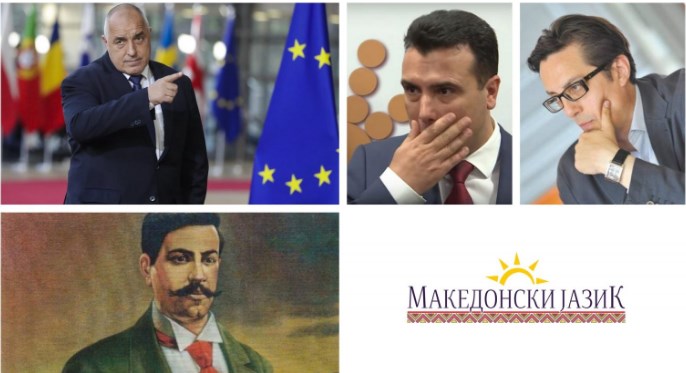Article 9 of the Declaration adoped after the online Zagreb summit of the European Union reveals that, as Bulgarian Prime Minister Boyko Borisov said, all EU member states will stand behind Bulgaria as it demands concessions from Macedonia. In his heated post-summit comments, Borisov warned Macedonia that Bulgaria will block its EU accession unless the 2017 treaty he signed with Zoran Zaev is implemented in full.
We told them what our conditions are for them to be accepted to the European Union. If you don’t like it, you don’t have to do it. We supported them for NATO. What are we supposed to do, say that we are Macedonians?, Borisov said, mockingly, before declaring a diplomatic win for Bulgaria contaiend in the EU Declaration.
Bulgaria asks that Macedonian historians agree that a number of historic figures honored in Macedonia were in fact Bulgarians. It also wants to prevent Macedonia from having the Macedonia language made into an official EU language in the course of the accession talks.
The EU fully supports the Western Balkans partners’ pledge to inclusive regional cooperation and strengthening good neighbourly relations, including with EU Member States. Implementing bilateral agreements in good faith and with tangible results, including the Prespa Agreement with Greece and the Treaty on Good Neighbourly Relations with Bulgaria, remains important in this regard. Further and decisive efforts need to be devoted to reconciliation and regional stability, as well as to finding and implementing definitive, inclusive and binding solutions to partners’ bilateral disputes and issues rooted in the legacy of the past, in line with international law and established principles, including the Agreement on Succession Issues. We welcome the recent appointment of the EU Special Representative for the Belgrade-Pristina Dialogue and other Western Balkan regional issues, article 9 of the Declaration sattes.
The language used here is reminiscent of how previous Greek demands for humiliating concessions from Macedonia were imposed on the EU as requests that come with the collective weight of the entire Union. The Macedonian Government attempted to conceal from the public that Bulgaria has appended conditions to the opening of accession talks, and once the text of the Bulgarian request was made public, Foreign Minister Nikola Dimitrov insisted that it is just a statement from one member state, and not the opinion of the EU. This claim was debunked by Borisov yesterday, and Macedonia’s opening of accession talks is now again in doubt.




Comments are closed for this post.